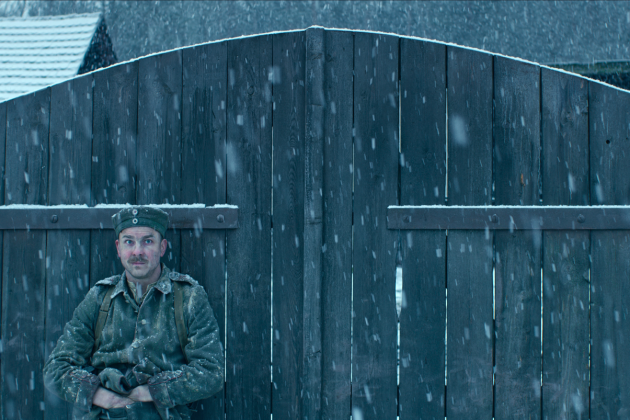‘All Quiet on the Western Front’ Made Awards Noise a Century Ago, Too
- Oops!Something went wrong.Please try again later.
- Oops!Something went wrong.Please try again later.
- Oops!Something went wrong.Please try again later.

The power of an important story told with passion and unflinching clarity always transcends the bonds of time. This explains the durability of Shakespeare’s plays when they land in the right hands, and it explains Edward Berger’s adaptation of Erich Maria Remarque’s fierce anti-war novel, “All Quite on the Western Front,” which is nominated for the best picture Oscar.
Nearly a century ago, director Lewis Milestone triumphed in one of the first Oscar competitions with his Universal Pictures version of the 1928 tome, filmed, remarkably, completely in and around its Hollywood Studio home.
More from Variety
Today, “Front” is registering with voters who are seeing the horrors of war in Europe live and in color as it sadly unfolds again with Russia’s invasion of Ukraine.
When Milestone filmed his “Front,” WWI was a decade behind the voters, who had just roared through the 1920s and hadn’t yet confronted the grueling toll of the Depression or the deadly threat posed by the rise of Nazism in Germany.
So the first “Front” dominated the news in Hollywood — not only as a humanitarian wakeup call to stop a war or all wars, but was also covered from all angles a big new picture from Universal deserved.
It was noted at the time that the film’s young star, Lew Ayres, had leaped from “banjo player in an orchestra” to hottest young leading man in the movies.
Variety dutifully reported the top fiction bestsellers of the time and Remarque’s stark novel was an international sensation.
And as for the Nazis, Variety was reporting on rumblings in Europe when “Front” was finally released. G.W. Pabst made his own version of strikingly similar material, titled “West Front 1918” and the National Socialists hated its pacifistic message. Ditto Milestone’s epic, when released caused movie theater mayhem in Germany, all whipped up by Nazis, including their propaganda chief, Josef Goebbels. Milestone’s masterpiece was quickly banned in Germany and Austria.
Variety reported on Dec. 24, 1930: “The Austrian government yesterday (Monday) decided that If Germany had ruled ‘In Western Nichts Neues’ was an insult to the Germanic people, Austria couldn’t take any other attitude.”
What is remembered, however, is the power of the picture and the first “Front” remains a high-water mark of early studio artistry in the brand-new sound era. Berger’s version of the novel benefits from a century of filmmaking technology but less happily, its humanistic plea for an end to war remains a dream more elusive than capturing the dancing beams of light on a white screen.
Best of Variety
Oscars Predictions 2023: PGA and SAG Have Final Word With One Week Until Final Voting Opens
Oscars Predictions: Supporting Actress – Angela Bassett Could Lock Up Her Oscar Win, If She Wins SAG
Sign up for Variety’s Newsletter. For the latest news, follow us on Facebook, Twitter, and Instagram.
